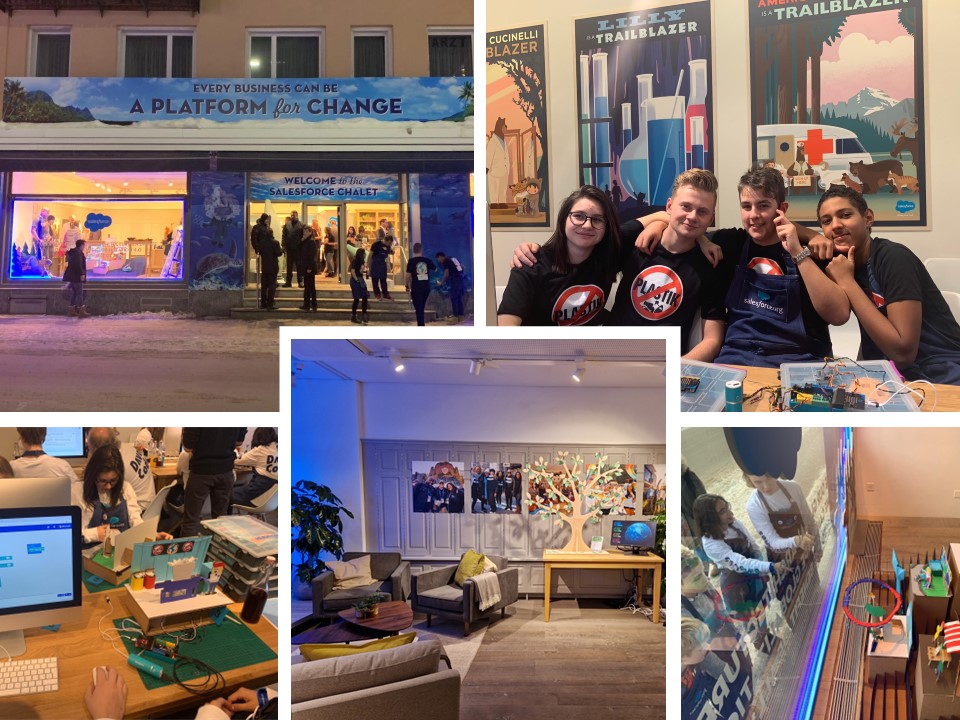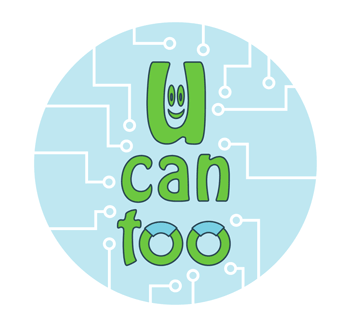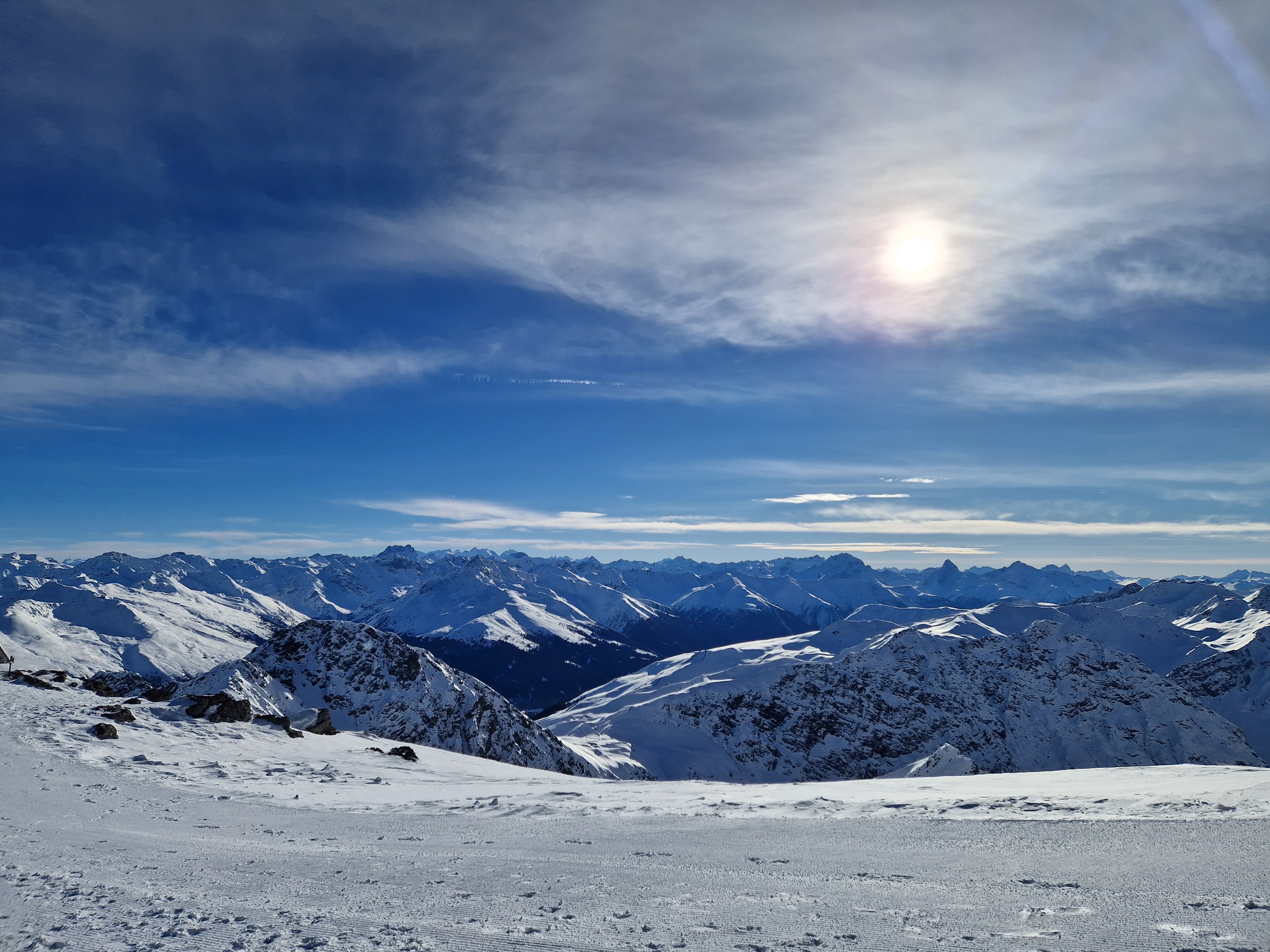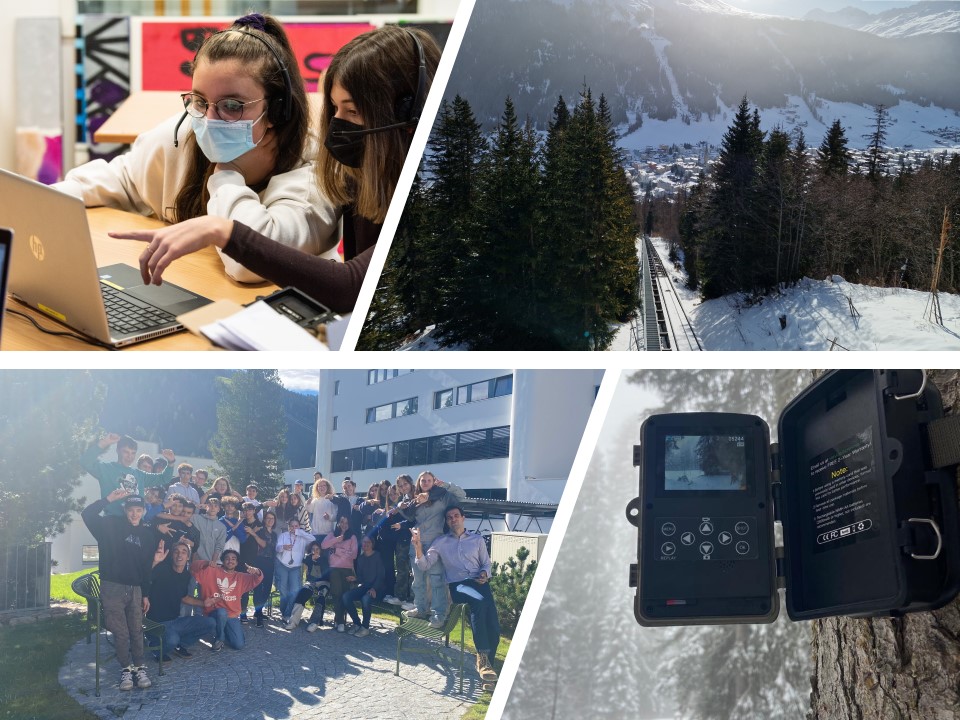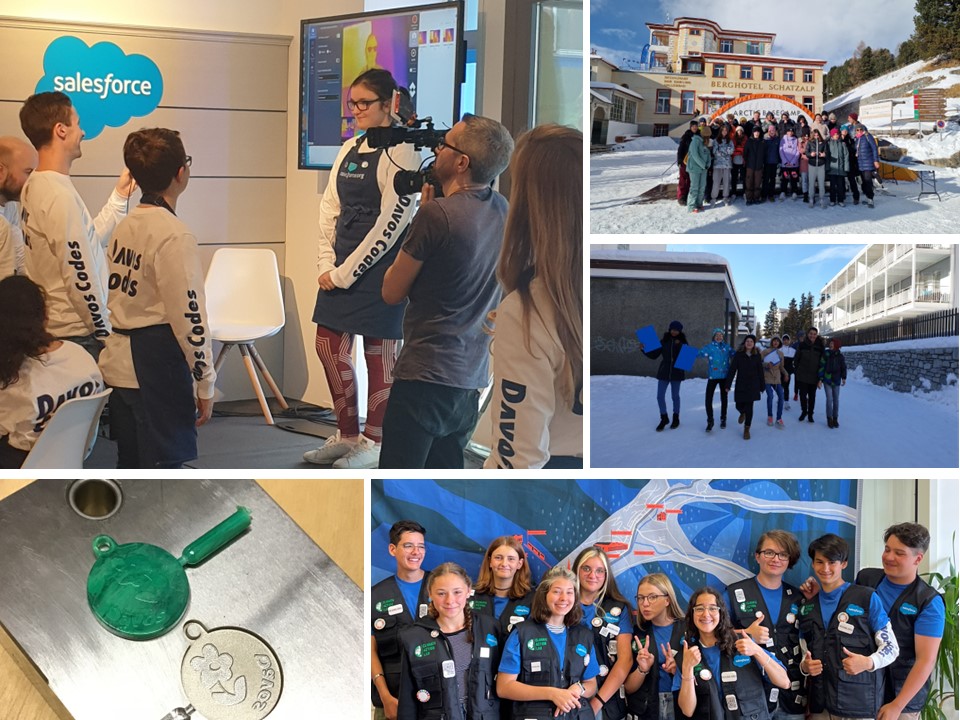In addition to our work with school students in the UK, for the last eight years, we have been contracted by Salesforce to support understanding of global environmental issues through Climate Action Labs. This programme began with one school in Davos, Switzerland and has since been rolled out to schools in Japan, San Francisco and India.
What is a Climate Action Lab?
The Climate Action Labs began as Davos Codes, founded by Salesforce in 2016, an event that took place at the World Economic Forum. Initially, Davos Codes began with a simple focus on programming. However, in the second year, it began to focus on using technology for purposeful outcomes related to the United Nations' Sustainable Development Goals. In the run-up to the 2017 WEF, Salesforce invited U Can Too to support the curriculum development of Davos Codes projects. Each annual WEF brought a new project focus for Davos Codes, and quickly, there became enough content to develop the Climate Action Lab programme and share more broadly.
A Climate Action Lab is an ongoing project focusing on the use of technology, in which groups of learners plan, investigate and tackle a real-world issue linked to the Sustainable Development Goals founded by the UN. Within the programme, young people learn about environmental issues facing the world, develop their own Climate Action Lab identity for their group, explore climate issues and Global Goals specific to their location, then use technology to investigate, collect data and share findings in relation to their identified issue. We are currently actively working with schools in Davos, Switzerland and Palanpur, India also providing opportunities for the students in both schools to connect via a ‘Lab Linkup’; a video call where students share experiences and discuss their findings.
Projects students have undertaken within Climate Action Labs include:
- Using digital technologies to build and deploy air quality monitoring systems
- Using wildlife cameras and audio recording equipment to monitor and track local wildlife
- Building seismometers to measure ground movement and learning about their use in relation to both earthquakes and avalanches
- Collecting used plastic and recycling it with specialist machines
- Using technology to monitor and sample water quality
The Impact of Our Work
It is hugely impactful for the young people working on these projects to see that they are working on something important, that is recognised globally. Each year learners from Davos are invited to share their work at the World Economic Forum; they have even had the opportunity to present via video messages at COP26. U Can Too has been part of the World Economic Forum for the past seven years with team members attending the event alongside the young people we have been working with.
In addition to their work being recognised globally at the World Economic Forum, the young people have actively campaigned for change in their local area as a result of their findings as part of their Climate Action Lab. In 2018 students were so shocked by their discovery of microplastics in the pristine waters of their mountainous region, that they campaigned for action which led to them winning a local campaign for their town to adopt plastic recycling. You can read more about this on the SalesForce blog here.
Their campaigning was extended in 2019 focussing on the Circular Economy and saw learners collecting plastic waste and using an injection mould machine to reuse this waste and produce campaign bracelets, helping to raise awareness of the importance of plastic recycling.
In 2020 learners in Davos discovered from their air quality data how fireworks had a huge impact on environmental air quality when collecting and reviewing data across New Year's Eve. From this information, they were able to inform a campaign that led to a ban on fireworks within their hometown.
World Economic Forum
The World Economic Forum meets annually in Davos, Switzerland and convenes over 100 governments, all major international organisations, the 1000 most important global companies, relevant civil society and academic institutions, as well as the global media. It is a huge, global event that provides a fantastic showcase opportunity for the students we work with. We’re very proud to have attended again in 2024 to support our hard-working young people at the Davos Codes showcase event. This year, students from both Davos and Palanpur participated in the event and shared their Climate Action Lab projects. We worked with students from both locations across several months leading up to the showcase event in January, using a wide range of equipment and developing a creative set of showcase demos.
Students used an AMOS (Aquatic Mini Observation System) with many sensors mounted onto a surfboard. They augmented their AMOS by adding a turbidity sensor (the type usually found in a washing machine or dishwasher) to detect particles suspended in water, and they also began to explore the challenges around automated water sample collection. They continued to use air quality devices, seismometers, wildlife cameras and Audiomoth devices to collect image and audio data relating to wildlife.
At the Davos Codes 24 showcase event, students heard from the impressive and inspiring Dr Jane Goodall, the fantastic YouTuber, Jacob Beautemps, and local AI expert, Hansueli Judd. Students built moving dioramas to share their experiences of using the array of technology and learned about the differences between AI and machine learning using the HuskeyLens and micro:bit. It was another high-reaching year for the students of the Realschule class, and they achieved amazing results. Three class members even got to attend Marc's Lunch, which they opened by sharing a little about the projects they had undertaken, then met celebrities such as Will.i.am, Sting and Dr Jane Goodall! We're already looking forward to next year, with great plans in mind!
